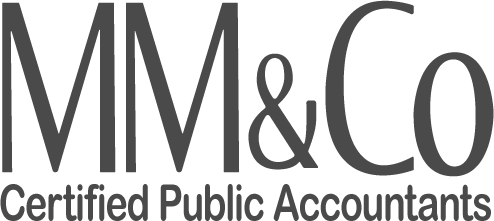Q: Why outsource the bookkeeping tasks?
As the saying goes, “Innovate or be Eaten”. To be able to keep up with today’s competition in terms of practicing the accounting profession or even in bookkeeping, you have to overcome the challenges you currently face and create new opportunities for you. Use the capabilities of experts in the field of bookkeeping and accounting and leverage on their skills while you focus on your core competencies. There are a lot of cloud accounting softwares available in the market that will increase service effectiveness and efficiency. An example of which is Xero Accounting Software from New Zealand (https://www.xero.com/ph/).
This outsourcing concept is applicable in both foreign and local transactions. In the case of Filipinos, we are an English-speaking country and are knowledgeable of the International Financial Reporting Standards. Such accounting and reporting framework is commonly used around the world.
Q: Why can’t I do the bookkeeping myself?
It may be more efficient and practicable to outsource bookkeeping to a firm rendering professional services.
Q: How much time and money can I save if I outsource accounting/bookkeeping?
Simple bookkeeping would take at least 3-5 hours a day if performed by a CPA. This time may be better spent managing the operations of the business.
Hiring an in-house CPA to perform accounting, tax compliance, and payroll tasks may cost more than the professional fee of a firm that can perform the same tasks. There is a risk of frequent employee turn-over and the accounting works shall be left behind without enough options to ensure that someone competent can immediately take on the work.
Q: What records must be maintained by businesses in the Philippines?
The Bureau of Internal Revenue (BIR) requires every taxpayer to keep a set of four or six books of accounts, to be kept and maintained in its principal place of business for ten (10) years.
1. Journal – Accounting entries are recorded in the Journal before the transactions are posted in the general ledger. It contains the following information:
- Posting date
- Description of the transaction
- Accounts to debit and credit and the corresponding amounts.
- Reference number which may be check numbers, Sales Invoice No., Purchase Order No., etc.
2. General Ledger – It lists the movement (Debit and Credit) of each account in its Chart of Accounts in a given period based on the journal entries in the Journal.
3. Cash receipts book – It is a record of the details of all cash receipts, including receipts for cash sales and collections of accounts receivable and other transactions involving inflow of money. Each entry may include the following details:
- Accounts to debit or credit and the corresponding amounts
- Date of record
- Date of receipt
- Cheque number (for cheque collections)
- Sales Invoice/Official Receipt number
- Short description
4. Cash disbursements book – It is a record of the details of all cash disbursements, including disbursements for cash purchases and payments of payables. Each entry may include the following details:
- Accounts to debit or credit and the corresponding amounts
- Date of record
- Date of payment
- Cheque number (for cheque payments)
- Sales Invoice/Official Receipt Number
- Short description
5. Subsidiary Sales Journal (optional) – It contains all cash and credit sales. Each entry may include the following details:
- Accounts to debit or credit and the corresponding amounts
- Date of record
- Sales Invoice/Official Receipt Number
- Sales terms
- Customer name
- Short description
6. Subsidiary Purchases Journal (optional) – It contains all cash and credit purchases of goods and services. Each entry may include the following details:
- Accounts to debit or credit and the corresponding amounts
- Date of record
- Sales Invoice/Official Receipt Number
- Purchase terms
- Vendor name
- Short description
Q: What should small business owners look-out for?
The business, ideally, should only commence operations after it obtains the necessary permits and licenses from the Securities and Exchange Commission (SEC) for corporations and partnerships or Department of Trade and Industry (DTI) for sole proprietorships, local government unit, and the Bureau of Internal Revenue (BIR), Social Security System, Philippine Health Insurance Corporation & Home Development & Mutual Fund agencies (as applicable).
As soon as the BIR issues the Certificate of Registration (BIR Form 2303), the taxpayer is required to start filing tax returns even if it has no transactions to report.
Q: What are BIR/tax reports/requirements that we need to maintain/submit?
The taxpayer needs to regularly file tax returns relevant to the tax types indicated in its BIR Certificate of Registration.
Q: How often do we need to submit these reports/requirements to the BIR?
In general, taxpayers are required to pay three main taxes, as follows:
- Withholding Tax Expanded – Monthly 0169E, Quarterly 1601EQ + Alphalist of Payees (QAP), Annual 1604E + Alphalist of Suppliers
- Withholding Tax on Compensation – Monthly 1601C, Annual 1604CF + Alphalist of Employees
- Value Added Tax (VAT) – Monthly 2550M; Quarterly 2550Q
- Income Tax – Quarterly 1702Q; Annual 1702
The taxpayer may be required to file additional tax returns, as provided in its BIR Certificate of Registration.
Q: What happens if I already have a registered entity in the Philippines but I’m not yet operational, do I need to comply with BIR reports?
The taxpayer needs to start filing tax returns as soon as the BIR Certificate of Registration is issued. It may reflect in its returns that it has no transactions for the period.
Q: Are there any additional requirements for foreign businesses registered in the Philippines?
In general, there are no additional tax compliance requirements for foreign businesses. However, additional tax filings may be required for taxes that are unique to foreign entities such as branch profit remittance tax for profits remitted by a Philippine Branch to its Head Office.
Q: What happens if we don’t comply with the mandated accounting/bookkeeping requirements?
The SEC mandates registered business to prepare Financial Statements in accordance with the Philippine Financial Reporting Standards (PFRS). In addition, corporate entities with authorized capital stock or paid-up capital, whichever is lower, of at least P 50,000 or quarterly gross sales of more than Php150,000 are required to submit Financial Statements duly audited and certified by an independent public accountant (external auditor) and stamped ‘received’ by the BIR within 120 days from the end of its fiscal or calendar year. No external auditor would issue an unqualified opinion unless the entity complied with PFRS in recording its transactions. The BIR also requires annual income tax returns to be accompanied by audited financial statements.
The SEC and BIR may impose penalties for failure to submit financial statements and tax returns on time.


